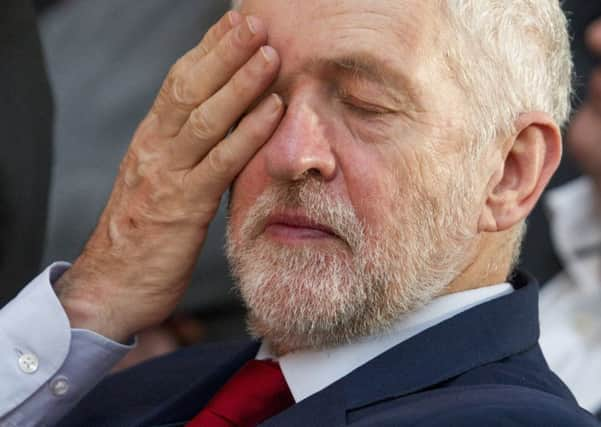Leader: Corbyn fails to acknowledge the danger that threatens his party


The decision by seven MPs to resign from the party yesterday, citing concerns over Labour’s position on Brexit and its failure to get a grip on the antisemitism which now infects it, had left him, said Mr Corbyn, “disappointed”. The leader’s closest ally, shadow chancellor John McDonnell, added that the seven should resign their seats, forcing by-elections.
What both men failed, dismally, to do was to engage with the reasons given for their decisions by the seven who quit to form what is to be known – for now – as the Independent Group.
Advertisement
Hide AdAdvertisement
Hide AdThere was nothing from the leader about Jewish MP Luciana Berger’s devastating remarks during the press conference held to announce the departure of the seven from the Labour Party.
Ms Berger – the victim of a relentless campaign of bullying from members who ally themselves with Mr Corbyn – said she had grown ashamed of remaining in the party, which has become institutionally antisemitic. She was, she added, “leaving behind a culture of bullying, bigotry and intimidation”.
Nor did Mr Corbyn, or any of his confidantes, feel it necessary to engage with the remarks of long-serving MP Mike Gapes who spoke of his fury that the Labour leadership is now actively facilitating Brexit.
Many of Mr Corbyn’s acolytes used social media to attack the decision of the seven – Ms Berger, Mr Gapes, Chuka Umunna, Chris Leslie, Angela Smith, Gavin Shuker and Ann Coffey – to walk away from their party. They were, wrote MP Lloyd Russell-Moyle, “cowards”.
That, we are bound to say, is a peculiar way to describe a Jewish MP hounded from her party by a campaign of repugnant antisemitism. Ms Berger has shown considerable courage in recent years in the face of threats and abuse that led last year, to her requiring the protection of police officers while attending Labour’s annual conference.
It fell to Labour’s deputy leader, Tom Watson, to respond in a manner appropriate to the circumstances in which the party now finds itself.
In a quietly devastating statement, Mr Watson spoke of the departure of his former colleagues from Labour as a “moment of regret and reflection”. Sometimes, he added, he “no longer recognises” his own party.
Mr Watson said he was particularly worried by the departure of Ms Berger and warned that Labour urgently had to confront the scale of the problem that had prompted her to go or risk others leaving.
Advertisement
Hide AdAdvertisement
Hide AdThere was no accident in Mr Watson’s use of the words so often uttered by his leader when he said it was time for a “kinder and gentler” approach.
The election of Mr Corbyn as Labour leader in 2015 was, claimed his supporters, evidence that people hungered for a “new politics”. The reality is that Mr Corbyn has brought with him a very old politics, indeed. His far-left supporters value ideological purity over pragmatism and compromise. Their simplistic “for-us-or-against-us” approach to debate has done nothing to bring their party together or to win the support of a majority of voters.
With the Conservative government in crisis over Brexit, Labour should now be soaring in the polls. Instead, under the leadership of Mr Corbyn – a career-long Eurosceptic – it remains a poor second.
It is often said that voters want politicians who are honest, principled, and willing to put the best interests of their constituents before their parties. From where we stand, the seven who decided yesterday that they could no longer remain in a Labour Party that supports Brexit and has failed to tackle the cancer of antisemitism appear to meet those requirements.
It may be that the Independent Group stumbles and falls, that it comes to nothing.
But it may also be the case that other MPs – from both Labour and the Conservatives – are inspired to walk away from parties now controlled by those on the political extremes and join The Independent Group.
This would be no bad thing. If our politics is, as is so often claimed, broken, those responsible are the ideologues of left and right whose loyalty to dogma comes before all else.